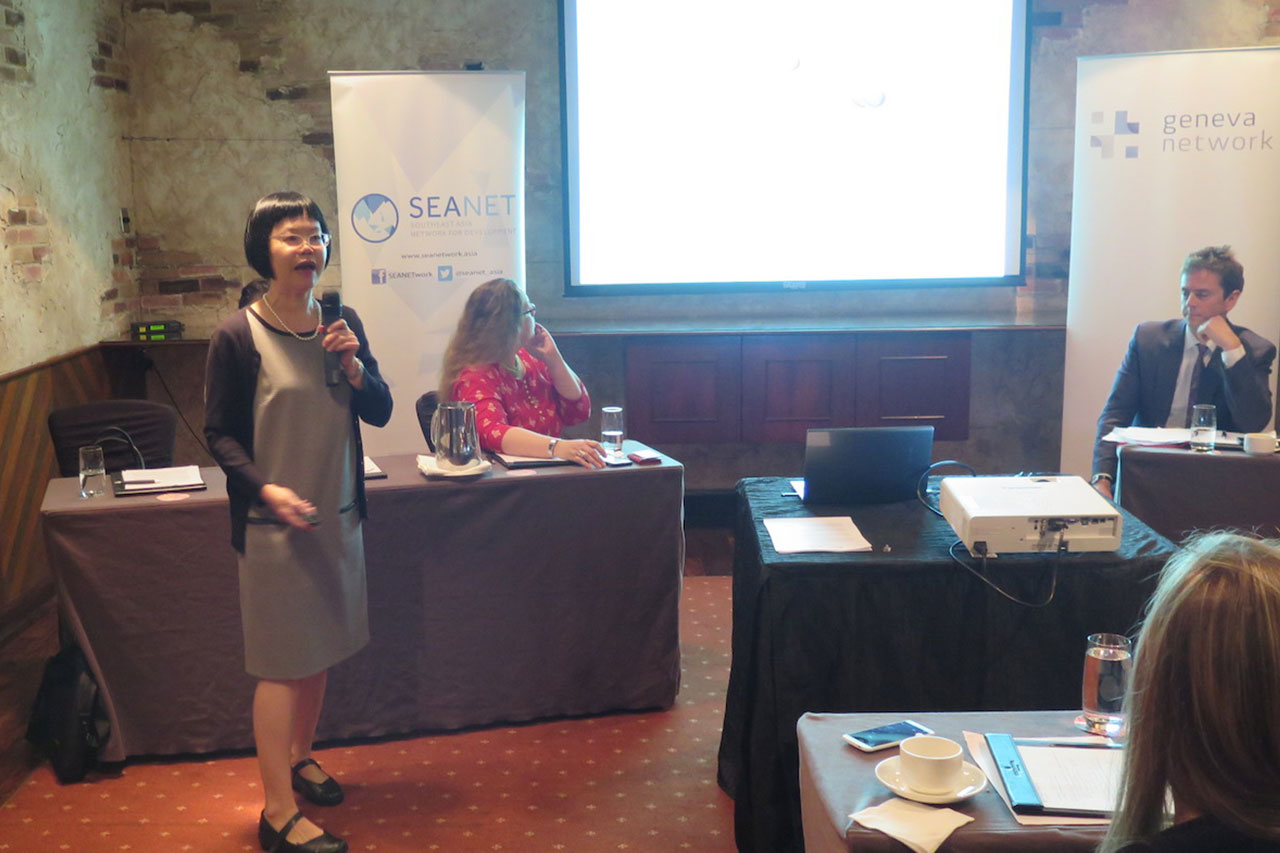Geneva Network co-hosted its first event on 21 May, in Singapore, with our friends at SEANET. The aim was to cast some light over the debate about TPP and health, which so far has been rather apocalyptic.
Prof Elizabeth Ng of the National University of Singapore kicked off by giving some context around the TPP, citing data showing the relative levels of medical innovation that occurs in each TPP country and outlining the various arguments for and against the likely IP components. She also raised the question of how the new IP requirements of TPP will fit into the existing constellation of trade deals in the ASEAN region.
Philip Stevens of the Geneva Network then set out some of the likely impacts of the TPP on health, citing his research showing that trade liberalization has historically driven up health outcomes, as it accelerates economic growth and the transfer of knowledge and technologies related to health. He also addressed some of the more alarmist predictions that have been circulating in the media about the IP aspects of TPP.
From the patient side, Andrew Spiegel of the Global Colon Cancer Association gave examples of the transformative effect new biologic medicines have had for sufferers for this disease. Bill Claxton of Singapore’s Carcinoid and Neuroendrocrine Tumor Society talked about the importance of innovation for sufferers of rare diseases, and patients’ needs for early access to new medicines.
From the pharmaceutical industry perspective, Mo Mayrides of PhRMA argued the importance of data exclusivity provisions being proposed in TPP for innovation in biologics. A sufficient period of data exclusivity, he argued, is vital for securing investment in this high-risk field of research and development because of the ease with which patents can be worked around.
Our thanks go to Debbi Helms of the Asian Trade Centre who made a fantastic moderator.



